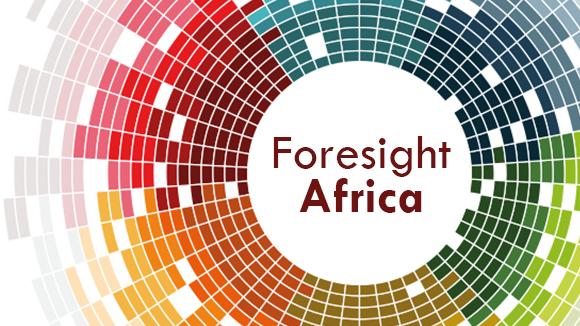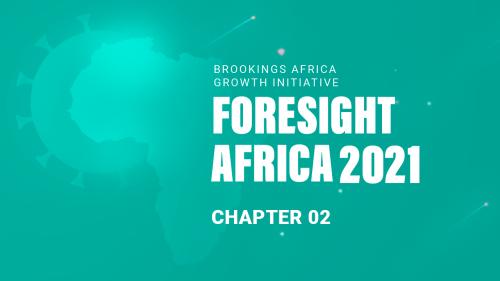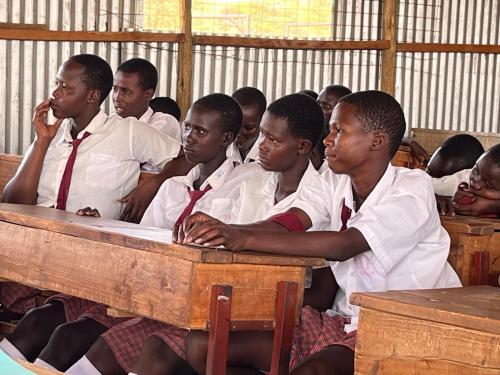Below is a Viewpoint from Chapter 2 of the Foresight Africa 2021 report, which explores top priorities for the region in the coming year. This year’s issue focuses on strategies for Africa to confront the twin health and economic crises created by the COVID-19 pandemic and emerge stronger than ever. Read the full chapter on support for public health.
 Through the tragic deaths of hundreds of thousands of people and the upending of our normal ways of life, the COVID-19 pandemic has revealed a global failure to invest in pandemic preparedness. Going forward, global and national leaders must consider strategies to build resilience to such crises, especially mechanisms for coordinated, well-planned responses led by national public health institutes (NPHIs).
Through the tragic deaths of hundreds of thousands of people and the upending of our normal ways of life, the COVID-19 pandemic has revealed a global failure to invest in pandemic preparedness. Going forward, global and national leaders must consider strategies to build resilience to such crises, especially mechanisms for coordinated, well-planned responses led by national public health institutes (NPHIs).
Nigeria, in particular, has some of the largest burdens of public health challenges in the world. In between the 2014 Ebola crisis and the current COVID-19 pandemic, Nigeria has responded to large, multiple, and sometimes concurrent outbreaks of Lassa fever, yellow fever, meningitis, monkeypox, measles, and cholera. The combination of the country’s tropical climate, population density, socioeconomic realities, and high cross-border movement provides a conducive environment for the emergence and re-emergence of infectious disease outbreaks.
In response to these ever-present threats, the Nigeria Centre for Disease Control (NCDC), as the country’s national public health institute, leads the strengthening of its core health security capacity. Its key components include public health laboratory services, emergency response activities, disease surveillance, and risk communications (see Figure 2.3). Prior to the COVID-19 pandemic, we had already been building on lessons from responding to Ebola and subsequent outbreaks to strengthen our health security. For example, in 2016, the NCDC established a National Incident Coordination Center for coordination of outbreak preparedness and response activities, and followed this with the establishment of similar structures at the state level. Not only have such public health emergency operations centers enabled better coordination of public health emergencies, but also, and perhaps more importantly, they have strengthened the role of state governments in coordinating international partners supporting outbreak response. Then, in 2017, we operationalized the NCDC National Reference Laboratory and subsequent laboratory networks to reduce our dependence on other countries for disease diagnoses.
Nigeria, like most African countries, has recorded far fewer cases and deaths from COVID-19 compared to countries outside Africa. At the same time, to prepare for a potential outbreak, we have increased financing from the government and the private sector to scale up our country’s health security capacity. Between February and October of 2020, we increased the number of molecular laboratories with capacity to test for the virus from five to 70. The initial five laboratories were part of the NCDC’s network of laboratories for other diseases. We have successfully deployed the Surveillance Outbreak Response Management and Analysis System (SORMAS)—a digital tool for real-time disease reporting and surveillance—in all states and Local Government Areas. Prior to the COVID-19 pandemic, SORMAS had been deployed in 14 states with more than half of the states in Nigeria reporting outbreak data using Microsoft Excel.
One key area of progress that has been made in Africa since the West African Ebola outbreak is the emergence and growth of the Africa Centers for Disease Control (ACDC). The ACDC has led several initiatives contributing to improved capacity in the NCDC as well as strengthened collaboration among countries in the region on managing risks and responses to health challenges. Epidemiologists from the NCDC are part of the ACDC’s roster of personnel deployed during outbreak response activities in Africa. Through this effort, the growing capacity in Africa’s health security is led by Africans. Furthermore, the ACDC has provided training opportunities for Nigerian epidemiologists, laboratory scientists, risk communications officers, and other public health officers.
COVID-19 is not the first pandemic of the 21st century, nor will it be the last. With climate change and several other environmental factors impacting the world today, vectors and animal reservoirs are spreading into new areas and having increased contact with humans, putting us at further risk. Given their immense potential to protect and heal, we should be building and strengthening these science-led organizations. The only way that we can control the next pandemic is by re-building, starting now, and investing in NPHIs.
The Brookings Institution is committed to quality, independence, and impact.
We are supported by a diverse array of funders. In line with our values and policies, each Brookings publication represents the sole views of its author(s).











Commentary
Investing in national public health institutes for future pandemics: Lessons from Nigeria
February 10, 2021